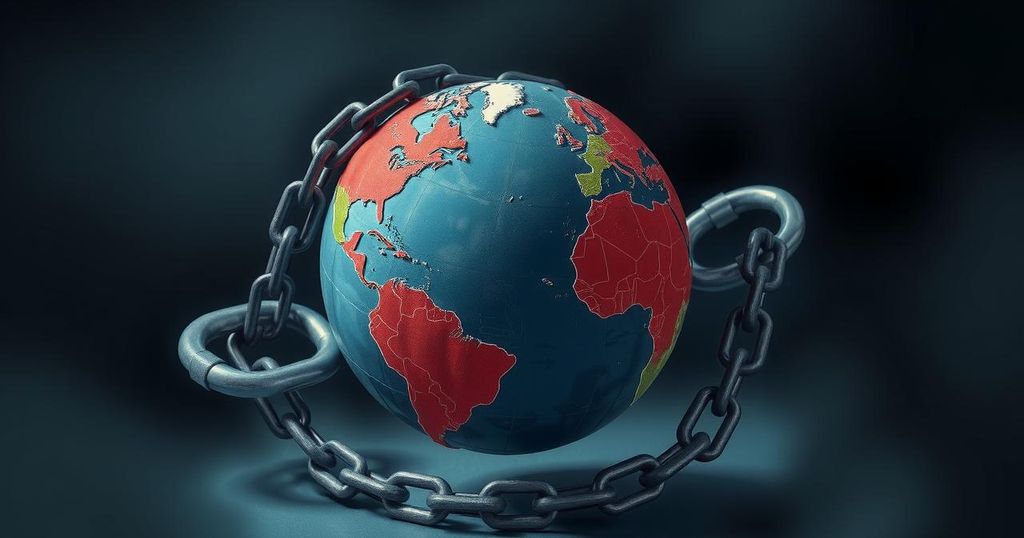Advocates Claim Missing Soldiers in Central African Republic Were Kidnapped

Human rights groups claim that missing Central African Republic soldiers were kidnapped by Russian mercenaries. Celestin Bakoyo and Elie Ngouengue were arrested near Bangui and have not been located since. Politicians and advocates express outrage over these disappearances, highlighting fears of Russian influence and human rights violations in the country. Protests are organized demanding answers regarding their treatment, as reports of brutal practices by mercenaries have surfaced.
Human rights advocates and Central African Republic politicians allege that missing soldiers, detained last month, were kidnapped by Russian mercenaries associated with the Wagner Group. These mercenaries have increasingly strengthened their ties with the Central African Republic’s military and government, which is situated in a resource-rich region known for gold and diamonds.
Celestin Bakoyo and Elie Ngouengue, soldiers who led a militia aligned with the Wagner Group in southeastern Central African Republic, were reportedly taken into custody at a police station on January 24. Ernest Mizedio, a local politician, stated that the pair were among a group arrested by Russian mercenaries responsible for training militia members.
Despite inquiries made by supporters to law enforcement and Russian security contractors concerning the soldiers’ whereabouts, no information was revealed. Mizedio reported a lack of acknowledgment from these forces regarding their situation, contributing to rising tensions and protests in the southeast of the country.
Prior to their detention, Bakoyo and Ngouengue traveled to the capital to set up new bank accounts to receive their military salaries. Their disappearance is emblematic of growing opposition to Russian influence in the region, particularly as Russia enhances its military and economic presence across Africa.
Joseph Bindoumi, president of the Central African Republic’s League for Human Rights, condemned the incident, labeling it a kidnapping, and stressed that even those accused of crimes are entitled to known whereabouts. Citizens have the right to ensure that legal protocols are adhered to and that their rights are maintained.
Many residents in the Obo region, who have long been wary of rebel groups faced by Russian mercenaries and local militias, now express anger toward those very mercenaries. One resident asserted the community’s plan to demonstrate until satisfactory explanations are given regarding the soldiers’ treatment and accusations against them.
Historically, mercenaries were deployed in Central African Republic during conflicts between government forces and predominantly Muslim rebels, where they were credited with combating armed groups. However, their operations have consistently faced allegations of human rights violations, including extrajudicial killings, torture, and rape, particularly highlighted in a 2023 investigation by The Sentry.
The alleged kidnapping of Central African Republic soldiers by Russian mercenaries highlights ongoing tensions within the region regarding human rights and military influence. Advocacy for transparency and accountability is growing amid fears and protests against Russian mercenary actions, reflecting a deeper concern over the use of mercenaries in local conflicts. The situation underscores the complexity and volatility of military intervention in the region, with ongoing scrutiny from local and international actors.
Original Source: www.winnipegfreepress.com







